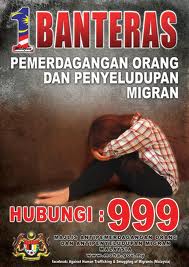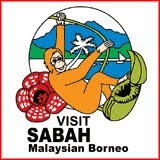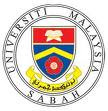
Tamparuli Sabah - A place to visit
Tamparuli Sabah was known as an old town rich with cultural value and fascinating places. The town located in the middle of Tuaran District, 36KM from the main city of Kota Kinabalu, easy to be found and a lot of surprises waiting for the visitors. The visitor will be fascinated with The Extreme Para Gliding Sport, The legendary of “Bukit Perahu”, Hatob-hatob Waterfall, Hanging Bridge and The Old Suspension Bridge Made by the British in the early 50s, The one and only "The Upside House Of Borneo" and Chantek Borneo Gallery if you visit Tamparuli Sabah. ( Please read more inside this website). For local tourist who likes to travel outside Malaysia, you can e-mail to D7tours and Travel Co through Harry.george@gmail.com. For International tourist who wish to visit Sabah The Land Below The Wind, you can e-mail or call to our correspondent travel agency:
Posted by
Harry Nok George
at
Sunday, October 28, 2012
![]()
![]()
Posted by
Harry Nok George
at
Sunday, October 28, 2012
![]()
![]()
Posted by
Harry Nok George
at
Sunday, October 28, 2012
![]()
![]()
Posted by
Harry Nok George
at
Sunday, October 28, 2012
![]()
![]()
 The suspects, aged 21 and 28, were nabbed at the Beirut International Airport. Malaysian Ambassador to Lebanon Ilango Karuppannan, when contacted by Bernama, confirmed the duo were picked up several days ago but could not confirm the arrest date.
The suspects, aged 21 and 28, were nabbed at the Beirut International Airport. Malaysian Ambassador to Lebanon Ilango Karuppannan, when contacted by Bernama, confirmed the duo were picked up several days ago but could not confirm the arrest date.
Posted by
Harry Nok George
at
Sunday, October 28, 2012
![]()
![]()
Binder: This one screams "typewriter," with a sliding mechanism for "various usage."
Memo PC: Yet another destination for the S-Pen, here's a small slate form factor.
Swivel Design: A thin and rugged Windows 8 laptop with a large swiveling metal hinge
Sources: http://www.engadget.com/2012/08/31/samsung-prototype-pcs/
Posted by
Harry Nok George
at
Friday, October 26, 2012
![]()
![]()
Posted by
Harry Nok George
at
Thursday, October 25, 2012
![]()
![]()
 The people who live in Tamparuli were mostly from Dusun ethnic. This article will be focusing on the origin of Dusun people in Tamparuli and Tuaran Sabah. What I have remembered for the past 20 years, my mother had told me that our grandfather were originate from Pinohuan somewhere in Kiulu area near to the Tambunan district. According to the history, Dusuns, Muruts and Rungus were traveler from Mongolia, where they travel thousand years ago. There have stop at The Philiphine Island and as evidence some of the word use by the Tagalog and Suluk people have same meaning with the word use by the Dusuns, Muruts and Rungus. I don't have strong evidence regarding to this matter but if do research regarding to matter, you will find it. If you travel to Mangolia or in Northen China you will found that some of the costume wear by this people really same with the costume wear by the Muruts and Rungus. As an assumption, the Dusun people have reached North Borneo and travel to Tambunan, Ranau, Tuaran, Kota Belud, Kudat and Kota Marudu. While the other ethnic of Dusuns, The Muruts travel down to Keningau, Tenom, Nabawan, Pensiangan and Sipitang. But that only my assumption. To know more about Dusun Tuaran please read below passage.
The people who live in Tamparuli were mostly from Dusun ethnic. This article will be focusing on the origin of Dusun people in Tamparuli and Tuaran Sabah. What I have remembered for the past 20 years, my mother had told me that our grandfather were originate from Pinohuan somewhere in Kiulu area near to the Tambunan district. According to the history, Dusuns, Muruts and Rungus were traveler from Mongolia, where they travel thousand years ago. There have stop at The Philiphine Island and as evidence some of the word use by the Tagalog and Suluk people have same meaning with the word use by the Dusuns, Muruts and Rungus. I don't have strong evidence regarding to this matter but if do research regarding to matter, you will find it. If you travel to Mangolia or in Northen China you will found that some of the costume wear by this people really same with the costume wear by the Muruts and Rungus. As an assumption, the Dusun people have reached North Borneo and travel to Tambunan, Ranau, Tuaran, Kota Belud, Kudat and Kota Marudu. While the other ethnic of Dusuns, The Muruts travel down to Keningau, Tenom, Nabawan, Pensiangan and Sipitang. But that only my assumption. To know more about Dusun Tuaran please read below passage.
Posted by
Harry Nok George
at
Monday, October 22, 2012
![]()
![]()

Posted by
Harry Nok George
at
Saturday, October 20, 2012
![]()
![]()
Posted by
Harry Nok George
at
Saturday, October 20, 2012
![]()
![]()
|
Posted by
Harry Nok George
at
Friday, October 19, 2012
![]()
![]()
Aspects to be addressed in the plan of development of Education (PPP)
In general, the 9 items below are the aspects that will be addressed in the Education Development Plan, namely:
1. Elevating the teaching profession.
Improving teacher quality
Teacher candidate recruitment through excellent academic
Quality in-service training
Increase the number of teachers with setting 1 teacher to 13 students over the previous one teacher of 16 students.
2. Improving school leadership.
Reward principals and teachers who demonstrate outstanding achievement and improve school performance.
Selection of principals and teachers based on merit as well as a more effective transition plan.
3. Improving the quality of schools.
Improving ICT facilities in schools
Internet and broadband facilities
Strengthen curriculum and assessment standards.
4. Building a curriculum that comply with international standards
5. Emphasis on creative, problem solving and innovation.
6. Improve languages.
7. Enhancing language proficiency third
8. Parental involvement, private and social sector as partners.
Better relationships and participation beyond the scope of school
Improve student readiness for higher education and the job market.
Various aspects directly applied to give students more prepared with the working
9. Skills such as leadership, problem solving skills, higher order thinking and effective communication skills.
Improve the efficiency and effectiveness of resources.
Manage resources more effectively to ensure effectiveness in the nation's education
Build the capacity and capability of the delivery system.
Quality and lay ministry enhanced governance
Efficiency at every level of management officials improved.
Update: 11 Things in Education Development Plan (Post Launch)
A historic event will be recorded when launched earlier report of the Education Development Plan (PPP) from 2013 to 2025 to be launched soon. What is more interesting, this plan will also apply in 2020. What about the gist later? After the launch of the observations and recommendations will still be required and the public still have the opportunity to express an opinion before finalized at the end of 2012. For information, a preliminary report later proposal is derived from the 2012 National Education National Dialogue, which was held throughout the country. Source: The Star Malaysia 8 September 2012
UPDATE:
Government recently launched the Education Development Plan, or PPP education development plan is designed for year 2013-2015. Overall, the plan consists of 11 items that should be taken note of:
1. Provide equitable access to quality education of international standard.
2. Ensure that each pupil proficient in Bahasa Malaysia and English
3. Produce Malaysian citizens who appreciate the value.
4. Transforming teaching as a profession choice
5. Ensure high performance leadership placed each school
6. Empowering JPN, PPD and schools to provide customized solutions based on your needs.
7. Leveraging the quality of learning in Malaysia.
8. Capability and capacity to transform the delivery of the Ministry of Education
9. Collaborate with parents, community and the private sector is widely
10. Maximize student success for every dollar.
11. Improving transparency for direct public accountability
Hopefully this made reform more able to increase competitiveness and quality of education students excel in school. Resources Daily News, Wednesday, September 12, 2012
Posted by
Harry Nok George
at
Friday, October 12, 2012
![]()
![]()
My Blog List
-
Dozens killed in violence in Sudan's West Darfur state - At least 24 people dead after an IDP camp was attacked following a dispute between Arab and African ethnic groups.4 years ago
-
-
Serius Pengumuman - Kami Telah Berpindah Ke Blogserius.com - Hai Sekiranya anda membaca mesej ini anda mungkin akhirnya tahu kami telah berpindah ke URL baharu iaitu WWW.BLOGSERIUS.COM. Penghijrahan ini dilakukan ker...5 years ago
-
-
-
-
-
Motor BMW Motorrad Murah Akan Hadir Di Indonesia - BMW G310R. Jakarta - Setelah cukup lama dinantikan akhirnya pihak BMW Motorrad Indonesia mengkonfirmasi peluncuran model G 310 R yang merupakan salah satu...7 years ago
-
-
-
Ranking every World Series in MLB history - Scandals, scapegoats, superstars and, yes, the Yankees. Sam Miller judges every October since 1903.4 years ago
-
Muammar Gaddafi Dead Because Of NATO - Image taken from Arab Satellite TV, Al Jazeera shows the Libyan supremo, Muammar Gaddafi, dead in his hometown of Sirte. He was reportedly shot with his ...12 years ago
-
-
-
A women needed to come home. - A 25-year-old local girl has been urged to return to her family at Kampung Pulong, 15km from here, because her grandmother misses her a lot. Jasmin Jimin,...12 years ago
-
-
We are worried but we can overcome this - The malaysian health ministry has reported 823 Covid-19 cases in the past 24 hours. Sabah again accounted for the highest number of cases, with 533 cases. ...3 years ago
-
-
-
PERODUA SERVICE CENTRE BRANCH KK2 - Putatan Sabah: How to properly have good service maintainance of ... - PERODUA SERVICE CENTRE BRANCH KK2 - Putatan Sabah: How to properly have good service maintainance of ...: "Please share and comments your thougths and expe...13 years ago
-
-
Usaha Parti Pembangkang Sarawak Akan Gagal, Jika.... - Memandangkan kerajaan negeri Sarawak bakal dibubarkan dalam masa yang terdekat untuk membolehkan pilihan raya akan diadakan pada bila-bila masa, sebelum ta...13 years ago
-
Sekolah Kebangsaan Lubuk Chempedak - A day with blessing morning.. This is the story about my school that i have been posted.. and i felt so lucky when i got offer letter from KPM..11 years ago
-
-
-
Year 4 World of Knowledge, Moving Around - ENGLISH LESSON PLAN Subject : English Class : Year 4, SK ...12 years ago
-
Hotel de Glace Ice Hotel in Quebec City, Canada - Hotel de Glace Ice Hotel in Quebec City, Canada9 years ago
-
-
Visit Western Wall Of Jerusalem - Old City of Jerusalem 1033 6share0share1052 *The Old City of Jerusalem *is one of the most intense places on Earth! At the heart of the Jewish, Islamic...12 years ago
-














































